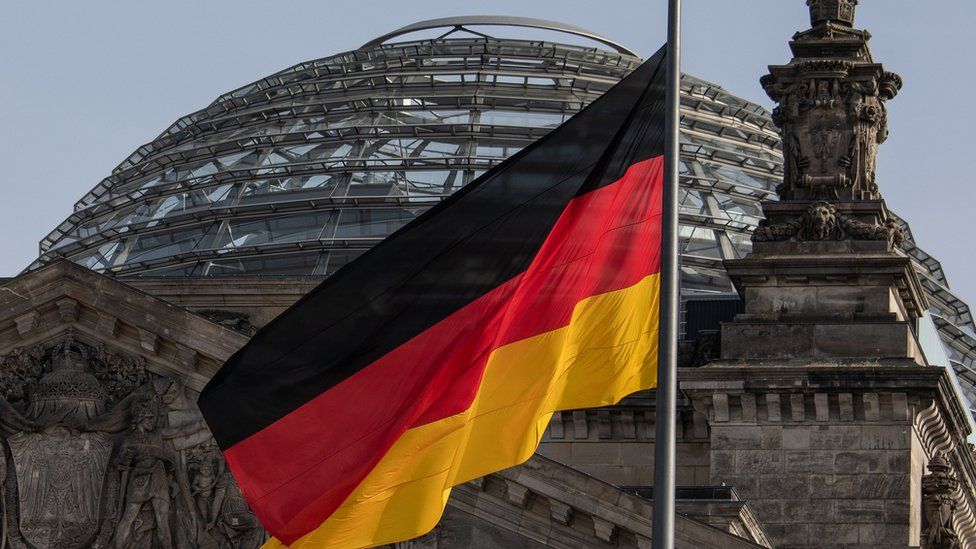Germany passes new citizenship law for descendants of Nazi victims
- Published

German lawmakers have approved changes that will make it easier for descendants of those who fled Nazi persecution to obtain citizenship.
Under German law, people stripped of their citizenship on political, racial or religious grounds can have it restored, and so can their descendants.
But legal loopholes had prevented many people from benefiting.
Campaigners say the move allow many to reconnect with their German heritage, particularly in the Jewish community.
"We acknowledge the work that the German people have undertaken to honour the memory of those lost and those who suffered in the [Holocaust]," said Felix Couchman, chair of the Article 116 Exclusions Group, which has been lobbying on the issue for years.
"These measures have been necessary stepping stones to rebuilding trust," he added.
While Germany's post-war constitution allows citizenship to be restored, the lack of a legal framework meant many people had their applications rejected.
Some were denied because their ancestors had taken another nationality before their citizenship was revoked.
For others it was because they were born to a German mother, but not a German father. Until a change to the law in 1953, German citizenship could only be passed on paternally.
A legal decree was passed in 2019 to help close these loopholes. Now that it has passed the lower house of Germany's Bundestag, with a large majority, prospective applicants will have a firmer legal footing for their appeal.
The law does also cover those who were directly deprived of their citizenship but, given the passage of time, descendants will be the main beneficiaries.
The new law also bars the naturalisation of people convicted of racist, anti-Semitic or xenophobic acts.
"This is not just about putting things right, it is about apologising in profound shame," said Interior Minister Horst Seehofer in March, when the government passed the draft law.
"It is a huge fortune for our country if people want to become German, despite the fact that we took everything from their ancestors."
The move comes as neighbouring Poland comes under the spotlight for a draft law which critics say would make it harder for Jews to recover property seized by Nazi occupiers during World War Two.
The bill, passed by Poland's lower parliamentary house on Thursday, has been condemned by the US and Israel.
Related Topics
- Published18 November 2019
- Published30 August 2019